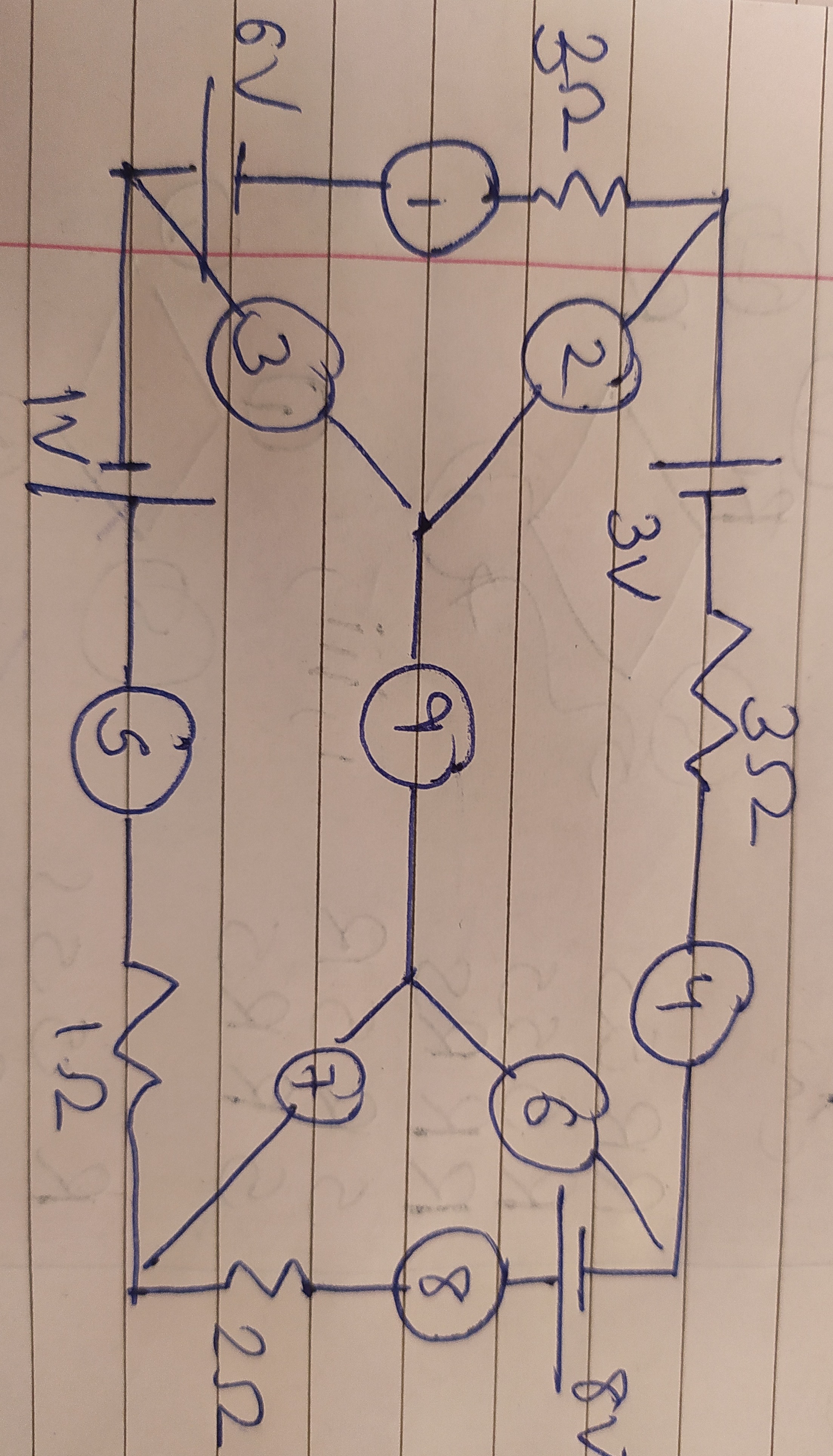Question
Question: The problem presents a complex circuit diagram with multiple voltage sources and resistors, along wi...
The problem presents a complex circuit diagram with multiple voltage sources and resistors, along with nine numbered nodes. The goal is to determine the potential at each of these numbered nodes.

V1=2V, V2=8V, V3=8V, V4=5V, V5=9V, V6=8V, V7=8V, V8=0V, V9=8V
Solution
The solution uses Nodal Analysis to determine the potential at each node in the circuit. Here's a breakdown of the steps:
-
Choose a Reference Node: Node 8 is chosen as the reference node (ground) and assigned a potential of 0V, i.e., V8=0V.
-
Determine Potentials of Directly Connected Nodes:
- Node 6: Since an 8V voltage source is connected between Node 8 (negative terminal) and Node 6 (positive terminal), V6=8V.
-
Interpret the Central Connections: The diagram shows direct wire connections from the central Node 9 to Nodes 2, 3, 6, and 7. This implies that all these nodes are at the same electrical potential. Therefore: V9=V2=V3=V6=V7=8V.
-
Determine Remaining Node Potentials using Voltage Sources:
- Node 4: A 3V voltage source is connected between Node 4 (negative terminal) and Node 2 (positive terminal). Thus, V4=V2−3V=8V−3V=5V.
- Node 1: A 6V voltage source is connected between Node 1 (negative terminal) and Node 3 (positive terminal). Thus, V1=V3−6V=8V−6V=2V.
- Node 5: A 1V voltage source is connected between Node 7 (negative terminal) and Node 5 (positive terminal). Thus, V5=V7+1V=8V+1V=9V.
-
Summary of Node Potentials:
- V1=2V
- V2=8V
- V3=8V
- V4=5V
- V5=9V
- V6=8V
- V7=8V
- V8=0V
- V9=8V
The key is to use Nodal Analysis, choosing a reference node, and then using the voltage sources and direct wire connections to determine the potentials at all other nodes.
